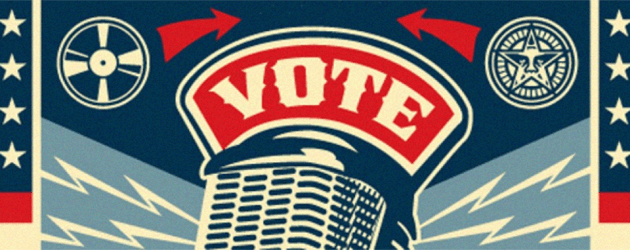
This letter was published in the Daily Journal on October 29, 2012.
Apparently, many registered voters plan to abstain in the upcoming presidential election because they object to both candidates.
Some refuse to vote for Mitt Romney, claiming that by doing so, they would be endorsing his religion. Others refuse to vote for Barack Obama, claiming they can’t trust his values or allegiances. These objections, while important, must not keep a good citizen home on voting day.
This is not the first time we have suffered from a lack of confidence in our candidates. We often go to the polls with some reluctance — forced to pull the lever in faith. This term is no different, but the stakes certainly do seem higher.
Many claim we are reaching the much feared point of no return. All of tradition and every kind of principle seems to have gone under the knife.
Our foreign alliances don’t seem to matter; our foreign policy protocol has been modernized, our religious roots denied; and traditional institutions redefined. The new “whatever” mentality has been officially inaugurated.
To make matters worse, we are all being pummeled by opinion from every direction. Our in-boxes contain one long stream of spinning propaganda. We are served heaping platters of information — but are never sure if we should swallow the next bite.
We grapple for reliable and unbiased sources of real data. It seems much easier to close our eyes and cover our ears until this is all over, but by doing so, we give up our right to have a voice — even a very small one.
During a recent homeowners association meeting, I couldn’t help but do a little imaginative comparing. As neighbors, we vote on issues such as water treatment, road maintenance and the use of common areas. Some choose to skip the meeting, leaving the power of their vote, or “proxy” with another. This makes the opinions of those present stronger, and in a sense, gives their votes more weight.
This scenario prompted me to think about those who don’t plan to show up at the polls this November. These passionate abstainers will not be leaving their “proxies” with trusted individuals who share their values and that can be counted on to vote with a balanced view of the issues; instead, they will simply abstain from using the power of their influence.
By refusing to vote, they are refusing to be counted, deciding instead to disengage. This decision doesn’t sound like civic responsibility— and it doesn’t sound like faith in action — it sounds like something to regret.
So, how does one vote when there doesn’t seem an acceptable choice? For me, it comes down to pressing in and believing that to vote is my civic duty. I must play my part, however small. I refuse to leave the power of my vote in a stranger’s hands.
I will choose the candidate that seems to most closely align with my conservative values and the issues that concern me most. I don’t need a pastor in the White House any more than I need a pastor to do my dental work. I want competent leadership that will tackle the many critical issues that matter to me, both locally and globally.
I will not make the perfect choice in this presidential election, but by faith, I will do my part by engaging and voting, with the belief that many collective voices can call us back from the dreaded point of no return, so that we can continue to walk the fine line of tension we so enjoy in this great country we call home.
Catherine Whittier 2012


Thanks, Catherine. I have never felt so “pummeled by opinion” in my life. This has been a tiring process, to receive information, to determine if it is safe to “ingest” and, if it is, to then re-plate it in a pleasing and acceptable manner to those you hope will see what you’ve seen.
I’d like to share this so that others who are undecided about voting might hear what you have to say.
LikeLike
Wheew! I’m with you, Kelley. I would be very grateful if you would share. Thanks so much for reading and for the role you play in helping others cling to truth in the tide of popular culture.
LikeLike